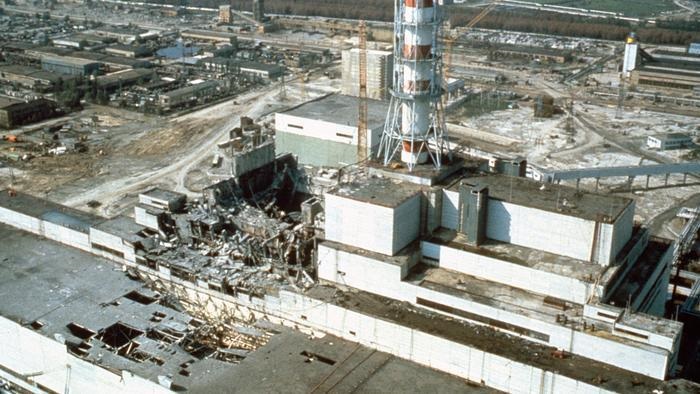A study analyses the relationship between nuclear technology and political change in post-Soviet Russia and Ukraine
A study analyses the relationship between nuclear technology and political change in post-Soviet Russia and Ukraine

Tatiana Kasperski, Marie Curie researcher and member of the Nexus between Science, Culture, Politics, Religion and Society (Nexus) research group of the Department of Humanities at UPF, has recently completed a research project. Over the last two years, she has analysed the governance of nuclear technology in the context of political change, focusing on the development of atomic energy in post-Soviet Russia and Ukraine.
The project, entitled “Technology and Political Change: Nuclear Power in the Post-Soviet Union” (TechPolChange) has been funded by a European Commission Marie Sklodowska-Curie grant, within the framework of the Horizon 2020 programme. She was supervised by Albert Preses i Puig, professor with the Department of Humanities and coordinator of the European project History of nuclear energy and society (HoNESt), which was recently completed and in which Tatiana Kasperski also participated.
“I have researched what this renewed support for nuclear energy really meant: if it implied a return of Soviet approaches and institutions to governing atomic power or a ‘transition’ to a more democratic nuclear governance”.
Russia and Ukraine are two former Soviet republics that inherited most of the Soviet nuclear reactors after the downfall of the USSR. Since the collapse of the Soviet Union, both countries underwent major transformations and political crises ending in the annexation of Crimea to Russia, the separatist war and Russia’s support in eastern Ukraine.
“The Chernobyl accident in 1986 and the political and economic uncertainties of the 1990s hit the nuclear sector with a deep crisis. At the beginning of the 21st century, however, the nuclear industries have regained the support of the governments in Moscow and Kiev, which have committed themselves to a ‘renaissance’ of the civilian atom”, says Tatiana Kasperski. According to the researcher, “through TechPolChange I have researched what this renewed support for nuclear energy really meant: if it implied a return of Soviet approaches and institutions to governing atomic power or a ‘transition’ to more democratic nuclear governance”.
Which areas within the nuclear sector were most affected by the political change?
Through interviews with different actors involved in nuclear policy and the analysis of documents and publications produced by state institutions, the nuclear industry and NGOs, TechPolChange identified the areas in which political change most affected the nuclear sector: institutional reforms, public engagement and public communication, national nuclear imaginaries and international openness.
TechPolChange identified the areas in which political change most affected the nuclear sector
According to Tatiana Kasperski, from the point of view of institutional reform, the process of creating, restructuring, and re-naming different bureaucracies responsible for the promotion and regulation of nuclear power has continued for almost three decades. However, paradoxically, these changes indicate the persistence of Soviet institutional legacies, both in Russia (with less government regulation, less surveillance, less control of nuclear institutions in the late 2000s) and in Ukraine (with difficulties to develop a coherent institutional and legal framework for nuclear development and to manage its energy and technological dependence on Russia).
Public involvement and communication with citizens
Public involvement has added a crucial component to nuclear governance. Political liberalization as of the late 1980s increased the opportunities for social mobilization and the creation of NGOs concerned about the environment. Another innovation was the introduction of public participation procedures for the construction of new plants, licence extensions, waste storage and the decommissioning of nuclear power plants.
Political liberalization as of the late 1980s increased the opportunities for social mobilization and the creation of NGOs concerned about the environment.
Moreover, in post-Soviet Russia and Ukraine, according to Tatiana Kasperski, citizen trust in NGOs is low and there are several obstacles that prevent citizens from influencing policy-making efficiently through participation procedures. However, “these changes may be a game-changing element in the long run: they allow the accumulation of independent activist expertise and more extensive information about industry problems, and create pressures for the industry to show somewhat greater accountability”, states the researcher.
Her research reveals that the potentially critical influence of the public also changed the way the nuclear industry engineers and scientists communicated with citizens, as the creation of local information centres, and more generally, new instruments and forms of communication, testify. “This communication became more local, more active, more consumer-oriented and aimed at separating nuclear energy from Chernobyl”, Tatiana Kasperski points out.
Strategies to promote nuclear energy and internationalization
Current nuclear energy promotion strategies are different from Soviet heroic-utopian depictions of nuclear energy and its significance for the Motherland. But Tatiana Kasperski highlights that the patriotic and nationalistic discourses have also developed in parallel as part of the promotion of nuclear energy: “After the dissolution of the Soviet Union, Russia and Ukraine embarked on nation-building policies and tried to define nuclear energy development as essential to ensuring the independence and grandeur of the respective nations”, she assures.
Patriotic and nationalistic discourses have also developed in parallel as part of the promotion of nuclear energy.
The researcher says that perhaps the most important aspect of political change with an impact on the governance of nuclear power concerns the international context: “After the fall of the USSR, nuclear industries in Russia and Ukraine have become much more open to international scrutiny and cooperation. At the same time the international and Western regulatory and safety regimes have been greatly redefined in the post-Chernobyl/post-Soviet era”, she concludes.
